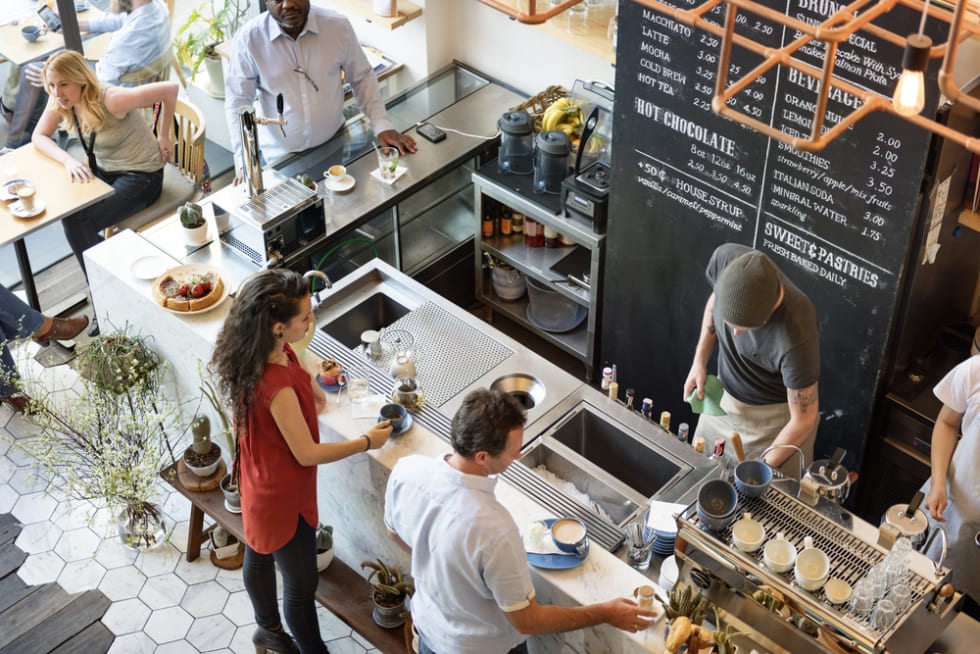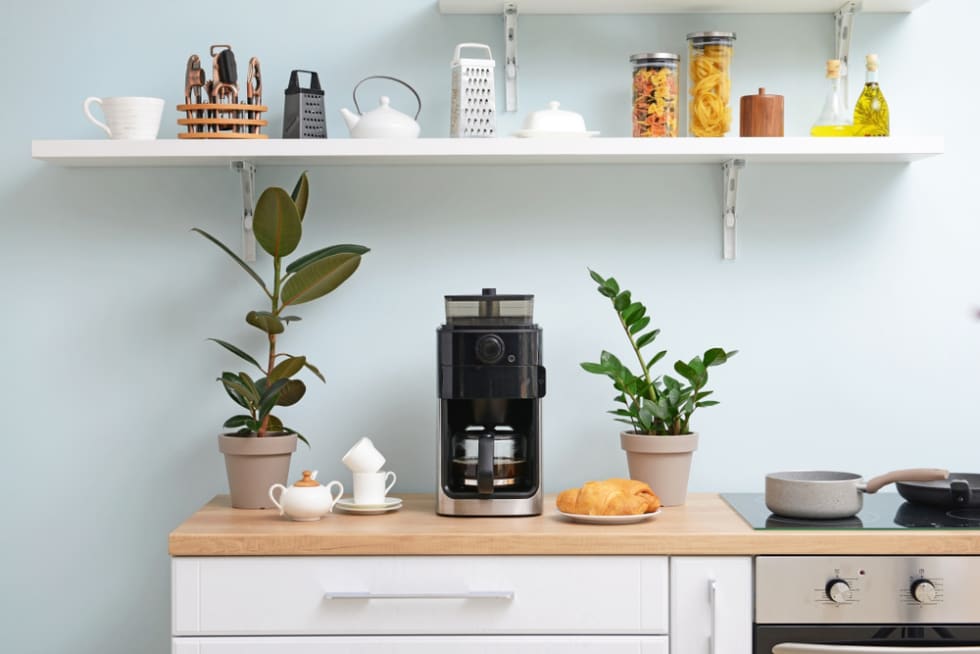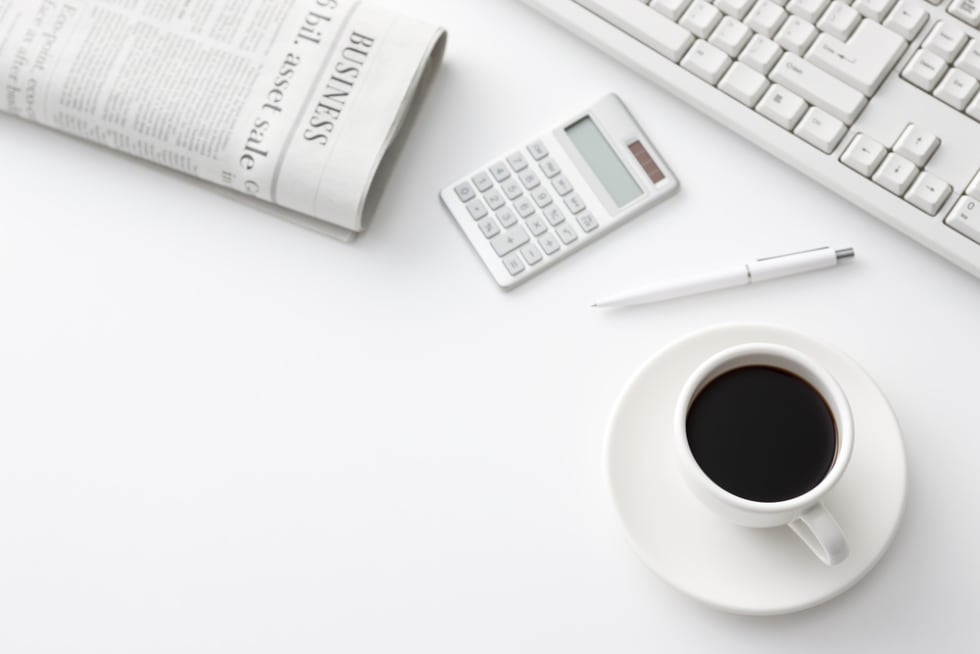South Bank at Quarry Trails
- 92 units available
- Studio • 1 bed • 2 bed • 3 bed
- Amenities
In unit laundry, Patio / balcony, Granite counters, Pet friendly, Stainless steel, Walk in closets + more

Ah, coffee. Its aroma helps coax us out of bed in the mornings. Its caffeine content gives our tired minds and bodies a jumpstart needed to start the day. Its distinct flavor profile delights our taste buds.
And its cost might be taking a bigger hit to our wallets than we think.
Though most of us don't budget out our monthly coffee costs, it might be worth doing. How many anecdotal stories have you heard of people adding up the yearly costs of their morning trip to Starbucks and realizing they could have purchased a used car with the money?
So, how much are you really paying for your cup of joe?
You might not be shelling out thousands for your morning fix, but knowing the true cost of a cup of coffee can help you determine whether it's worth it for you.

The cost of coffee varies across the United States. This is due, in part, to the different coffee chains that are popular in a given area.
Different chains will have different prices. For example, while Starbucks is considered a higher-end coffee chain, Tim Hortons is generally considered a more affordable option.
You'll also note price variance based on locality. You'll likely pay more for a cup of coffee in a large metropolitan city than you would in a smaller town or city. It's challenging to pinpoint the exact cost of a cup of coffee, but we're going to try!
Here's a breakdown of the lowest price for a cup of coffee from some of the most popular coffee chains across the nation.
As you'll note, the costs vary, significantly. If you favor Starbucks, you'll end up paying over a dollar more for your morning brew.
However, your preferences matter the most here. Not knocking Starbucks, we all enjoy a venti iced caramel macchiato with extra caramel just as much as the next person!
Beyond the best drink you can order at Starbucks, if you're looking to maximize your coffee budget, you'll need to determine how much your location will impact the cost.
Here's a list of the average coffee cost for the biggest regions in the US.
If we estimated five trips to the coffee shop weekly and 50 work weeks (2 weeks off), your coffee habit could be costing upwards of $675 a year. That's a lot of coffee!

If you're looking to minimize the amount you spend on coffee, brewing coffee at home could save you money. However, there are many coffee machines on the market. It can be challenging to choose the best machine for your needs.
Moreover, each machine will come with its own upfront cost, in addition to the applicable accessory and supply costs.
To save on your yearly coffee bill, you'll need to take these costs into account and compare them with the cost of a trip to your local coffee shop.
If you're not sure where to start, we've got you covered. Here’s a breakdown of the costs of the most popular coffee machines and their supplies.
If you choose to purchase a coffee machine, you must consider the additional costs that come with the purchase. In addition to accessories, there are some additional costs to consider. These costs vary significantly, but researching them before buying a machine can help save you a lot of money in the long run.
Here are the additional costs of home-brewed coffee to consider:

Overall, your preference will determine whether at-home or coffee shop drinks are the right choice for you. However, your budget will likely have a say in the matter.
If you're concerned with maximizing the bang for your buck, then at-home coffee is generally the way to go. Here are two coffee cost analyses that will help you make your decision.
Home-brewed coffee generally costs anywhere from $0.16 - $0.25 per cup. The average cost of coffee from a shop in the U.S. is $2.70. Let's say the consumer likes one cream and two sugars in their coffee.
These are generally free additions at a coffee shop, but will cost a few cents at home. That said, let's make the at-home coffee rate $0.23 per cup. So, we've got $2.70 per cup of shop-bought coffee and $0.23 per cup of home-brewed coffee.
Here's how the costs add up:
Coffee Four Times a Week
Coffee Daily
Coffee Every Day for a Year
However, you should also consider the cost of your home coffee setup. Also, consider the convenience and time savings. Going through a Starbucks drive-through on your commute may be more practical for your situation.
Want to save on coffee? Check out the tips below.
Coffee is one of the joys of life, but it doesn't have to be a drain on your finances. Maximize your coffee investment by making frugal choices, but don't give up something that makes you happy!

In unit laundry, Patio / balcony, Granite counters, Pet friendly, Stainless steel, Walk in closets + more
In unit laundry, Granite counters, Hardwood floors, Dishwasher, Pet friendly, 24hr maintenance + more